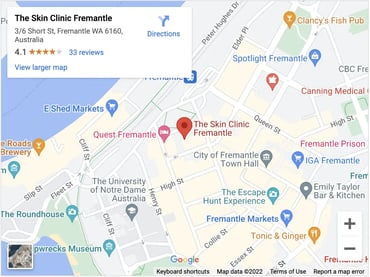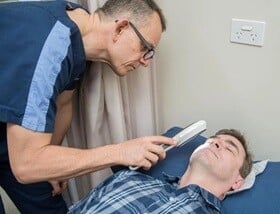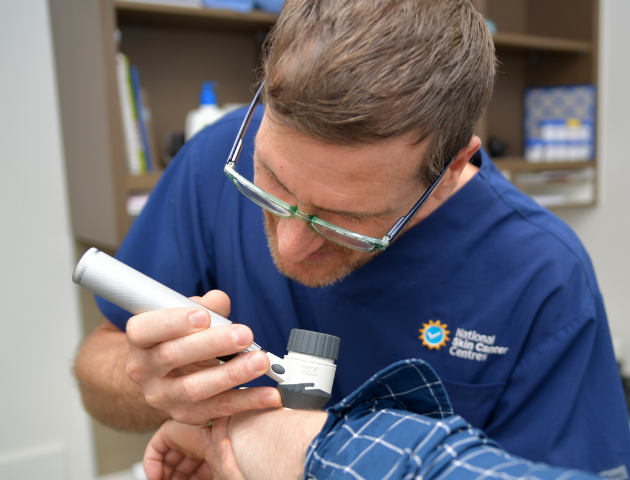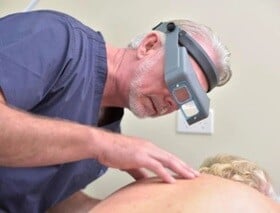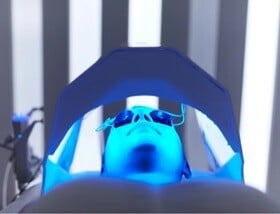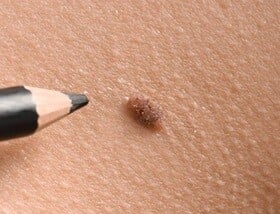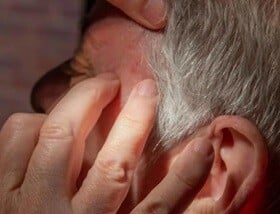Skin cancer clinics in Perth, Western Australia
Our skin cancer clinics in Perth, Western Australia take comprehensive care of your skin health. For the best care, our qualified doctors work closely with highly trained support staff are primarily focused on skin cancer diagnosis and treatment.
Melanoma diagnoses in Western Australia are up to 67% higher than the national average. Our skin cancer clinics in Fremantle and West Leederville can help you with skin cancer checks, melanoma screening, surgical and non-surgical skin cancer treatments, and wound and scar management.
At our cosmetic clinic in West Leederville, our medical team also provides muscle relaxants and targeted skin treatments to address ageing, sun damage, acne, rosacea, and more. We can help you with mole removal, solar damage topical treatments, and muscle relaxants to help you look and feel your best!
Patients come to us from all over Western Australia, including Fremantle, White Gum Valley, Beaconsfield, Palmyra, Hilton, O'Connor, Perth CBD, Wembley, Subiaco, Mount Lawley, Mount Hawthorn, North Perth, Glendalough, Joondanna, Shenton Park, and the surrounding areas. You can find all of our local Perth doctors in one place to save time and make it easier for you to put your skin health first.
Book an appointment at a skin cancer clinic in Perth
Al Nour Skin Centre
Address
586 Newcastle Street West Perth WA 6005
Phone
08 9481 3366
Opening Hours
Monday to Friday: 8.00am - 5.00pm
The Skin Clinic Fremantle
Address
6 Short Street, Fremantle
Perth, WA 6160
Phone
08 9336 3066
Opening Hours
Monday - Thursday: 8.30am - 5.00pm
Friday: 8:30am - 4:00pm
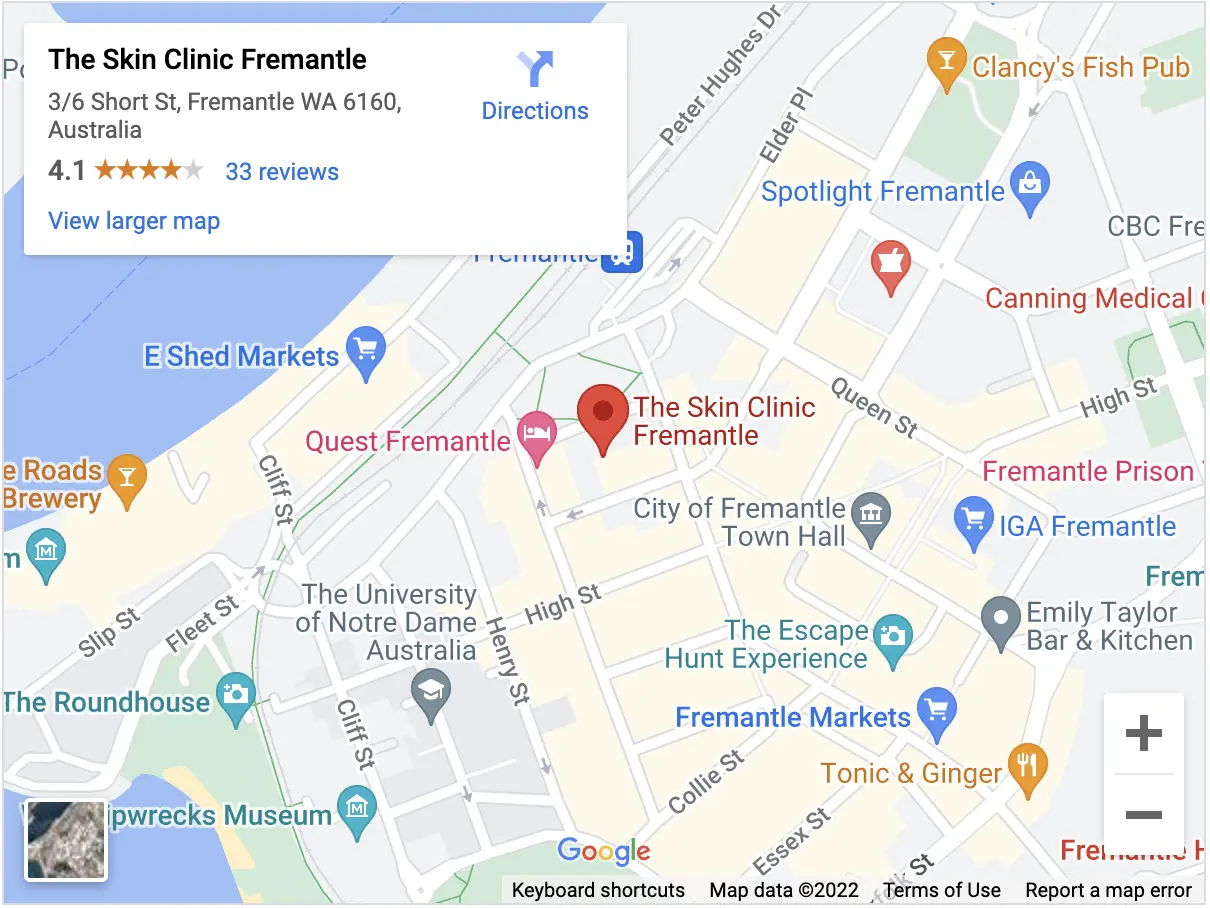
Berwick Skin Cancer Centre
Address
48 Van Der Haar Avenue
Berwick, VIC 3806
Phone
03 9769 3358
Opening hours
Monday to Friday: 9.00am - 6.00pm
Saturday appointments available.
Services at our skin cancer clinics in Perth (Western Australia)
Services in our cosmetic clinic in Al Nour
Frequently Asked Questions
Why are skin cancer checks important in Perth and around Western Australia?
Melanoma diagnoses in Western Australia are up to 67 per cent higher than the rest of the country. Early detection gives the best chance of successful treartment.
If you are at high risk for skin cancer or have already been diagnosed with it, it is important to have a doctor check your skin at least once a year or every few months. Self-exams are also a good way to keep track of your skin between skin checks, but you shouldn't count on them to catch everything because skin cancer is often hard to see with the naked eye.
At our skin cancer clinics in Perth and around Western Australia, doctors working primarily in skin cancer will carefully look at your skin for moles, freckles, bumps, or any other signs of skin cancer.
Am I at risk of skin cancer?
Australia is the skin cancer capital of the world, with over one million skin cancers treated yearly - more than 100 every hour! People living in Perth may be at even higher risk if they:
- Have had skin cancer before
- Have a family history of melanoma
- Have lots of moles
- Have fair skin or fair hair
- Have blue or green eyes
- Are aged over 40
- Work outdoors or regularly enjoy outdoor activities
- Have ever been severely sunburnt
- Have ever used a solarium (tanning bed)
- Are male
What are the types of skin cancer?
Basal cell carcinoma (BCC)
The most common form of skin cancer but the least dangerous. The disease usually occurs on the upper body, head, and neck. Symptoms include lumps or dry, scaly areas. Basal cell carcinoma can be red, pale or pearly in colour. In time, it may become ulcerated or appear like an unhealed sore.
Squamous cell carcinoma (SCC)
It is not as dangerous as melanoma, but it can spread to other parts of the body if left untreated. Over several months, it grows on sun-exposed skin. It can look like a thickened, red, scaly spot that bleeds easily, crusts or ulcerates.
Melanoma
A very dangerous form of skin cancer that claims one life every five hours in Australia. It often appears as a skin lesion that is different from the other lesions on your body, with irregular borders and multiple colours, but some melanomas are invisible or show no signs at all.
What are skin checks?
In Perth and Western Australia, it takes between 15 and 30 minutes to check your whole body for skin cancer. Our doctors will look at your head, face, neck, torso, legs, feet, toes, arms, hands, and fingers. You will need to take off everything but your underwear, and a gown or blanket can be provided to help you feel more comfortable.
Skin cancer can occur anywhere on the body, so if you find any strange spots under your underwear, you should tell your doctor, as genital areas aren't always checked. The doctor won't check these places unless you request it.
How often should I get my skin checked?
If you have a high risk of skin cancer and live in Perth or Western Australia, you need regular skin cancer checks.
A follow-up skin check may be done once or twice a year or every few months for people at very high risk.
How can a doctor with advanced skin cancer training help me?
Our skin clinics are designed for examining, diagnosing and treating skin cancer, all in one location. About 99 per cent of skin cancers are curable if detected and treated early.
A regular skin cancer check is your best defence against complex surgeries, costly procedures, and even death. Our doctors have a wealth of experience, skills and recognised certifications in skin cancer care and utilise the latest skin cancer detection and treatment tools.


